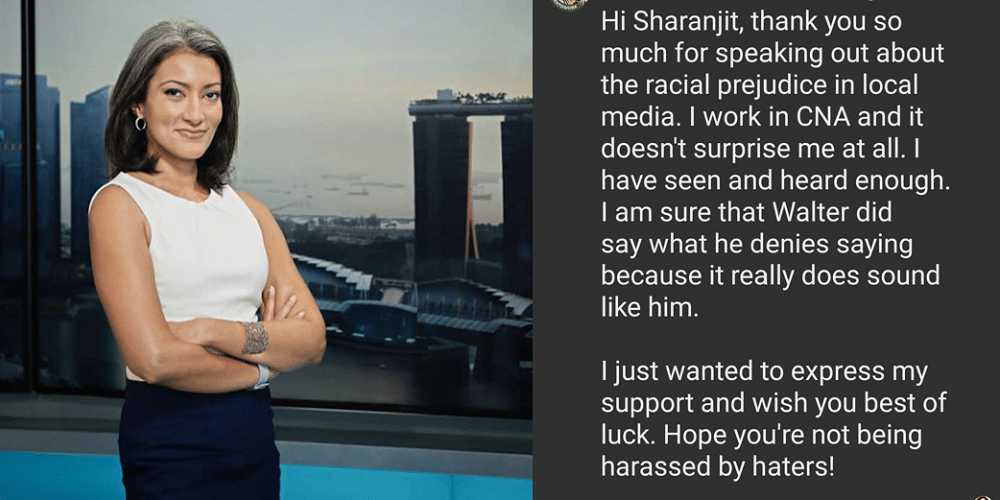By Ghui
So it has happened again. The government has yet again attempted to limit the Singaporean public’s access to material which it deems unsuitable by banning the public screening of “To Singapore, With Love”.
From Roy Ngerng’s now infamous law suit to the now not-so-new raft of MDA rules restricting online content, this latest saga is yet another example of how the government has missed an attempt to engage with its citizens.
Despite the government’s constant reassurance that it wants to be more in touch with its citizens, its attempts have not gone beyond “throwing money at the problem”. They have of course introduced financial reforms from the Pioneer Package to the GST vouchers. They have also made attempts to streamline our transportation system to alleviate the congestion. But when it comes to their mindset – has much really changed?
Again, I would like to reiterate that there is no suggestion here that the PAP have not done a good job overall. That said, there are many aspects of its governance that are in urgent need of reform. One very prime example is “the government knows all and best” mentality. If the government feels that the public ought not to be exposed to something – that is absolutely fine but surely, it has to give proper reasons as to why it has come to that conclusion. Singaporeans are well educated and increasingly well travelled – don’t we deserve to know the reasons? Isn’t that accountability?
The government has already missed a golden opportunity to give its side of the story about the CPF issues brought up by Roy Ngerng. If it had done so, the Singaporean public would have come to its own informed conclusion and may have disregarded Ngerng by their own volition. Instead, the government chose to publicly slam him in the harshest possible way using a method linked to the draconian ways of the former Prime Minister Lee. This had the effect of pushing hitherto neutral people to question the PAP’s tactics and also to wonder what it is that the PAP is hiding that it cannot just address Ngerng head on.
Again, I am not suggesting that the PAP is hiding anything, but by refusing to address the questions raised by Ngerng directly and suing a lone defenceless blogger instead, it gives the unwitting impression that the PAP is trying to suppress and silence a thorny issue it has no good answer for.
In this case, the reasons cited for the banning of To Singapore with Love are that “the film has to be disallowed because of national security concerns”. What are these national security concerns? Any normal understanding of the phrase “national security concerns” would conjure up images of violent protests, riots or war.
How would the screening of a film lead to that? Is the government concerned that people might conduct a protest at Speakers’ Corner, the only place where Singaporeans can protest in public, as a result of exposés made by the film? How does this fit the doomsday scenario the phrase “national security concerns” drums up?
Besides, it would seem that many of these so called alternative views to history have long been discussed. They are certainly not new. Is this banning therefore less about national security and more about trying to show who’s in control?
The Media Development Authority’s actions have been backed up by the Minister of Communications and Information, Dr Yaacob Ibrahim who has said that the individuals in the film have “given distorted” and “untruthful accounts” of history. It is noteworthy to remember that it is also Dr Ibrahim who said that Singaporeans should only be exposed to the “right” information vis a vis the MDA regulations with regards to online content without giving a satisfactory explanation of what constitutes “right”.
As any mature individual will understand, history is in many instances subjective. No matter what the government tells us, Singaporeans have the freedom to travel and read. They know that history is not just about facts but the interpretation of facts and such interpretation can be influenced by a myriad of factors ranging from cultural background to educational exposure.
If Dr Ibrahim is of the view that the individuals featured in the film present a set of facts he does not agree with, why not give his own version or enter into a dialogue with the makers of the film? Surely that would have more use in fleshing out fact from fiction? Surely that would give Singaporeans the open forum to make an informed choice as to which version they want to believe? Some Singaporeans would gravitate towards Dr Ibrahim’s version while others would lean towards the film’s. Such is the nature of life. No one has monopoly over truth. This is particularly relevant in the Internet age and Dr Ibrahim should know better than to try and dictate what people should believe.
By banning the film, the government not only generated extra publicity for the film but also piqued the interests of people who may have never bothered to watch the film otherwise. By trying their best not to legitimise the film’s claims, they have in reality promoted the film leading to people organising trips overseas just to watch it.
Are these genuine concerns over national security, or perhaps just concerns over the security of the PAP remaining in power? If so, these concerns are misguided, and neither should these be MDA’s concerns. The PAP does not equate Singapore. Nor is there an immediate concern over the PAP losing power. There are other ways to remain in power apart from attempts at control that firstly do not work and secondly do not endear them to the voting public.
What exactly does the government hope to achieve by banning the public screening of this film? And what exactly has it achieved by so doing?
Subscribe
Login
2 Comments
Newest





